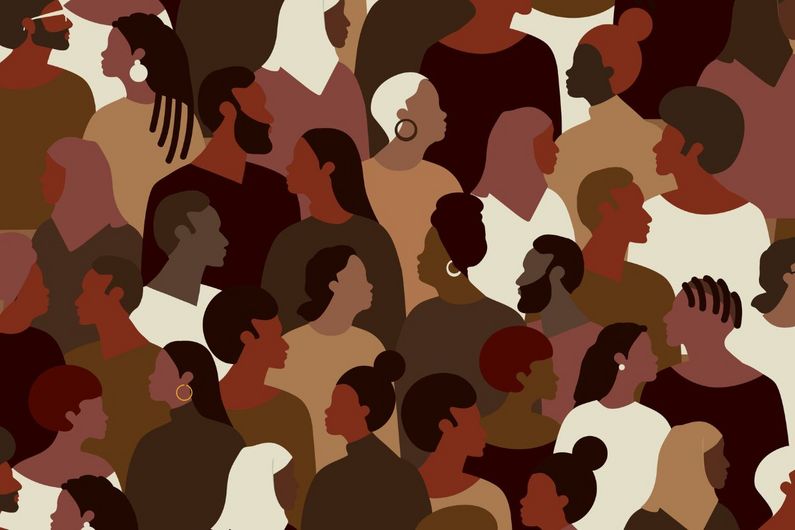Education by and for Black communities
- UdeMNouvelles
04/25/2024
- Catherine Couturier
A new UdeM project is exploring ways to incorporate the knowledge of Black communities and the work of Black Studies researchers into francophone school curriculums.
“There is not a single French-language Black Studies program in Quebec or France,” deplores Catherine Larochelle, an associate professor of history at Université de Montréal interested in issues of racism.
Her new French-language knowledge-mobilization project aims to fix that.
Its goal is to develop a Black Studies program at UdeM and, more broadly, take a hard look at how the knowledge and perspectives held by Black communities are now – or can be – integrated into other university programs.
The project is called “Intégrer les savoirs et perspectives noires à l’université: une mobilisation des connaissances hors, vers et à partir de l’université pour une plus grande inclusivité."
In English, that translates to "Incorporating Black knowledge and perspectives into academe: mobilizing knowledge outside, into and from the university for greater inclusion."
Funded by the Centre de recherche interdisciplinaire sur la justice intersectionnelle, la décolonisation et l’équité (CRI-JaDE), the project is co-led by Larochelle, communications assistant professor Pascale Caidor, and CRI-JaDE researcher Diahara Traoré.
They presented preliminary findings from their research March 27 at a seminar and interactive workshop for partner organizations. During the workshop portion, participants broke out into groups, then came together in a full-group session to share their vision for a Black Studies program at UdeM. “We’ll compile the results from the seminar and incorporate them into our research project,” Caidor said.
Attentive to the issues
“People have been sounding the alarm about issues of racism on Canadian campuses for years,” said Larochelle, but increasingly, “university leadership has become more attentive to these issues.”
Dalhousie University in Halifax launched Canada’s first Black Studies program in 2016. In Quebec, CRI-JaDE’s put out a call for projects, and Caidor, a senior researcher who's originally from Ivory Coast, looked into developing a similar program at UdeM.
As a result, last fall, the university's knowledge-mobilization project was launched. In the first of several phases, doctoral student of philosophy Jacques Renaud Stinfil surveyed the academic literature on Black Studies.
“The review confirmed there’s no shortage of material available for us to use,” Larochelle said.
Semi-structured interviews were conducted with UdeM researchers, professors and alumni, as well as with community stakeholders. A comparative analysis of institutional strategies developed in other Canadian universities is forthcoming.
“This is an exploratory project that is intended to yield a range of results, including a Black Studies program,” Traoré said. “We want to dig into the different layers of understanding, the potential benefits, and community perceptions.”
More than a fad
One of the project’s unexpected discoveries has been the forgotten archives of UdeM’s Centre de recherche caraïbes (Centre for Research on the Caribbean), which was active from 1968 to 1989.
“The Centre had a research station in Martinique, where researchers could visit,” Larochelle said. “I never even knew it existed and I’ve been at UdeM for 13 years, first as a student and then as a faculty member.”
The Centre played an important role in Black communities and as a liaison with government authorities.
At the time, there were no “Black Studies” at UdeM – but it’s not uncharted territory.
“We’re not jumping on the bandwagon,” Larochelle said. “It’s been a field of research at UdeM for years.”
In the 1970s, for instance, UdeM was home to the secretariat of the Association des universités partiellement ou entièrement de langue française (AUPELF) and participated in its interuniversity research projects in Haiti, the Caribbean, Guyana, and Réunion.
Interviews for the new project have helped define challenges, such as the under-representation of Black communities on campus. “There aren’t enough Black professors, nor enough Black students in key programs such as medicine and history,” Caidor said.
More symbolic representation
But it's not just about the numbers. There also needs to be more symbolic representation, and Black knowledge and epistemology are still too infrequently incorporated into academic curricula, project's leaders say.
Blacks need to feel represented in their institution and to see the contributions of Black communities to Canadian society given greater visibility, they say. Caidor believes this would go a long way toward fighting racism and ignorance.
A Black Studies program would help paint a better picture of the Canadian context and create spaces for dialogue, something the French-speaking world has hitherto lacked, she said.
But before getting such a program off the ground, a number of hurdles must be faced.
First and foremost, there's a general denial of Black realities and experiences—even, indeed, that a problem exists at all. And Black Studies are often perceived as militant or politicized, which raises another barrier to acceptance.
It's off-campus that knowledge and perspectives of Black communities are more often found – and that needs to change, the researchers say.
“Historically, the Black community has had a strained relationship with academia," said Traoré. "There’s been distrust. As a result, many custodians of Black knowledge remain outsiders."
The knowledge-mobilization project is forging ahead. Larochelle and her group intend to present UdeM officials with a report and action plan. They'll hold a symposium on the topic next fall and plan a summer school open to the community at large.
“We want to keep the conversation going,” Caidor said.











